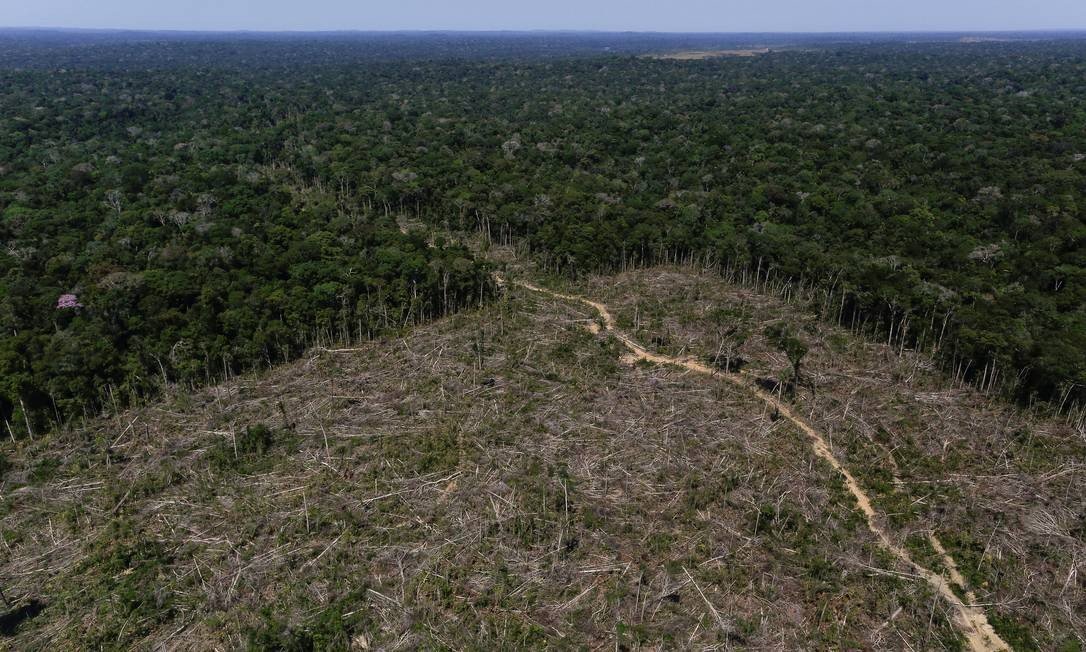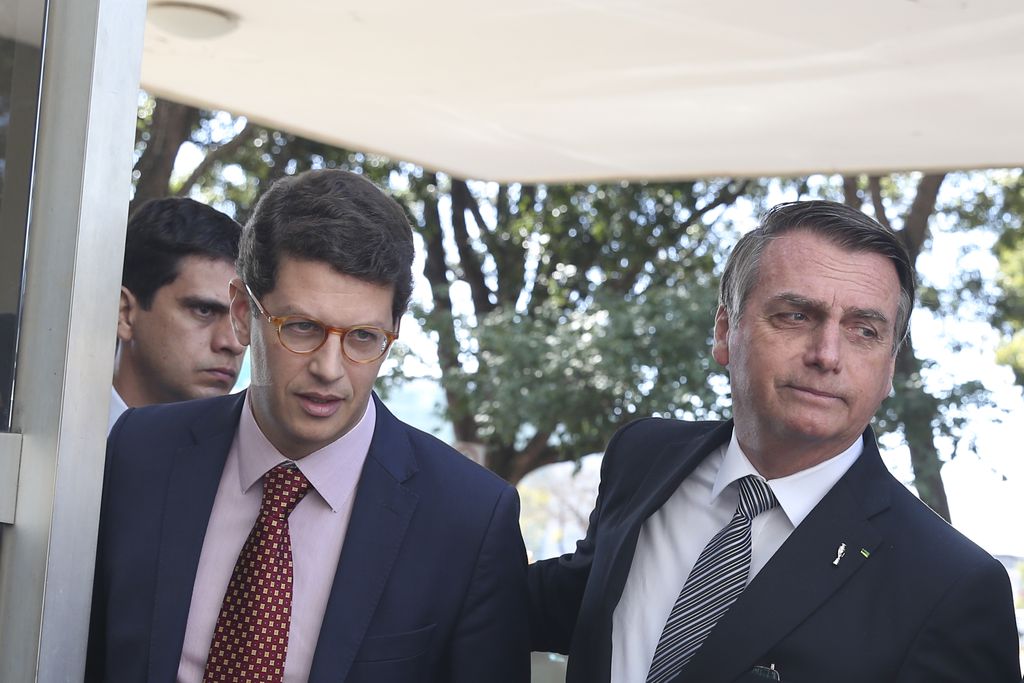RIO DE JANEIRO, BRAZIL – Chainsaws advance rapidly into the world’s largest rainforest, which plays a crucial role in containing climate change. The Brazilian Amazon has lost 9,762 square kilometers of vegetation – a little more than the 7,946 kilometers of the metropolitan region of São Paulo – in a twelve-month period.

The figure, which is the worst in more than a decade and represents an increase of 30 percent over the previous year, was released on Monday by the Brazilian public body that carries out official satellite readings. It confirms what the real-time alert reports had been pointing out for months: that deforestation has intensified since the inauguration of Jair Bolsonaro, a firm advocate of economic exploitation of the Amazon at virtually any cost and who ignores the role of indigenous peoples in its preservation.
Deforestation in the Brazilian Amazon has been increasing since 2012, albeit at a slower pace. The area now destroyed is equivalent to 1.3 million soccer fields and will further increase pressure on Bolsonaro and his ministerial cabinet, as both his speech and his environmental policy startle not only indigenous people, NGOs and scientists, but also many foreign governments, starting with the Europeans.
Months ago, the President harshly criticized the National Space Research Institute (INPE), questioned its readings and dismissed its director. Despite this, its environment and science ministers attended the presentation of the deforestation figures that are compiled on a rolling basis every 12 months.
The figures released on Monday show the volume of forest destroyed between August 2018 and last July. In other words, they include seven months of Bolsonaro’s mandate. The presentation at the headquarters of INPE in São José dos Campos was awaited with great anticipation, since the global controversy over the raging fires in the Amazon remains unabated and because the real-time alert systems – used to mobilize inspectors, firefighters and other professionals – had heralded that the destruction of the forest had soared.
Environment Minister Ricardo Salles blamed the massive increase on the “illegal economy”, in reference to the illegal activities of miners, loggers, and invaders, who appropriate the land. Salles said it is necessary to build sustainable economic opportunities in the region. Ecologists and some of the agricultural sector’s businessmen say that the economic development of the Amazon is not incompatible with environmental preservation.
The deadlines outlined by Bolsonaro for this purpose include the start of commercial exploitation of indigenous lands, which currently enjoy vigorous legal protection that only allows them to be used for the sustainable benefit of the indigenous people who have lived there for millennia. Among the measures announced by the ministers to fight deforestation are the reinforcement of inspection in the Amazon and the visit of a number of scientists, in addition to the transfer of some research organization to the area.
According to NGOs, the main culprit for this massive increase is the president. “Bolsonaro’s anti-environmental project has destroyed the ability to fight deforestation, favors those who commit environmental crimes and encourages violence against the (native) peoples of the forest,” said Cristiane Mazzetti, of Greenpeace’s Amazon campaign. The World Wild Fund (WWF) stressed that never before have there been so few environmental fines as in recent months.

The increasingly visible effects of climate change have placed the environmental issue at the heart of the political debate in Europe and much of the world. This led to intense pressure, which Bolsonaro had not expected and which turned him into the planet’s environmental villain.
During the campaign, the retired captain proclaimed his disdain for environmental preservation. “If I get there, there won’t be any money for NGOs. These useless people will have to work… And I will not define indigenous land for as long as I am president,” he pledged. Said and done.
Bolsonaro has not extended legal protection to other territories since he took office in January. But he was forced to forget his pledge to follow in the footsteps of US President Donald Trump, who withdrew from the Paris Agreement. The enormous weight of exports to the European Union (EU) and international political pressure forced him to announce that he would uphold his commitments.
For Europe, the climate issue is also crucial to the ratification process of the trade agreement between Mercosur and the EU, which was signed months ago after laborious negotiations and which all the countries of both blocs must sign in order to come into force. France leads the countries demanding that Brazil respect the global agreement on climate change as a prerequisite for supporting the treaty.
The first ones to sound the alarm about the government’s environmental policy were the former environment ministers. In May, they accused him of destroying all the advances made since the international pressure against the destruction of the forest prompted Brazil to implement policies to preserve it.
Deforestation reached its historical peak in 1995, with the destruction of 29,000 square kilometers of the Amazon (three times the current figure) and its minimum in 2012, with 4,500 square kilometers.
This positive evolution was the result of an ongoing policy that protected dozens of indigenous reserves by law, decreed that only 20 percent of each land may be cultivated in the Amazon and reinforced the inspection and punishment systems for those perpetrating environmental crimes.
Source: El País

